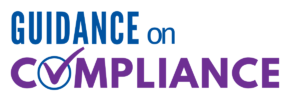Maybe you have been involved in a Training, Probe and Educate (TPE) audit for your Medicare Part B claims this year. If so, you are not alone. The Medicare Administrative Contractors (MACs) have been focusing on Physical Therapy (PT), Occupational Therapy (OT) and Speech Language Pathology (SLP) documentation and the TPE is a common way to capture the attention of providers. The Centers for Medicare & Medicaid Services (CMS) TPE provides a full explanation of the procedures. If you are billing Medicare Part B for PT, OT or SLP services you should be aware of this audit and have a process for monitoring requests for Additional Document Requests (ADR)s.
Some important things to consider are the importance of timing of the follow through on a request, and what to do if the TPE denies your claims.
- Once the ADR comes in, CMS guidelines require providers to submit documentation within 45 days of the ADR date. The ADR is sent to a provider’s practice address on file with Medicare.
- If the records are not submitted in a timely manner, that will count as a denial.
- If your claims are denied, you can prepare appeal letters; first the Redetermination, next a Reconsideration, the Administrative Law Judge (ALJ) Hearing and Appeals Council (AC) can review your appeal.
Most critical is to understand the reason for the denials. Recently we have seen TPE for use of the KX modifier. The KX modifier is required to be added to each Current Procedural Technology (CPT) code that is billed for services rendered over the PT/SLP or OT threshold. The “CAP” has been revoked; however, CMS is using a threshold of $3,000 as a cut off for services over the expected amount in a year. In the absence of patient specific documentation to support the reason for the KX modifier, the documentation is deemed not medically necessary.
The Medicare Claims Processing Manual Chapter 5 outlines the requirements for using the KX modifier. The manual, section 10.3.1 – Exceptions to Therapy Caps – General, states that the KX modifier is added to claim lines to indicate that the clinician attests that services at and above the therapy caps are medically necessary and justification is documented in the medical record.
Here is where understanding of the MAC auditors comes in. You may think that your documentation supports medical necessity, and specifically that the skills of the therapist are supported. However, recently I participated in a TPE training round, and it was very interesting to hear the perspective of the MAC auditor! Just because your therapist lists “skilled interventions” as part of the treatment plan that is not enough. If the documentation appears that the skilled interventions are drop-down choices from the EMR, and they are not patient specific, or the interventions are not described, they are not deemed to be medically necessary!
Another important takeaway was that even though the denied claim was for a particular month, with a limited number of days, the MAC is looking back over the entire year to see if the patient was in fact treated previously in the year. And, in most instances, that would be a yes, because that is why the KX modifier is being applied to the claim under audit. The MAC auditor went on to explain that if the documentation reports that the reason for skilled intervention is decrease in strength, reduced functional endurance, and does not SPECIFICALLY address that this plan was new and different from other stays, that is not medically necessary.
Also, in order to demonstrate that the skills of a therapist, versus a non-trained caregiver, are required hinges on very patient specific documentation. The therapist must take the time to “paint the picture” of the clinical thought process, why the treatment plan is changing, and the specific clinical reasons why another round of therapy is necessary. Best practice would be for every evaluation and progress note that has a KX modifier on the codes to include a patient specific narrative that explains the rationale for why therapy over and above the $3000 threshold is indicated.
A general template for a KX Modifier Support Statement should include the following information:
1. The patient requires skilled services of a licensed therapist beyond the Medicare threshold … {This statement lets a reviewer know the therapist is aware the patient has exceeded the Medicare threshold amount.}
2. … due to _________________________ {This is where the therapist includes patient specific pertinent information to support the statement in #1. It may include the primary diagnosis, Past Medical History and/or Comorbidities, PLOF compared to CLOF, etc.}
3. The skills of the therapist include _______________________________ {This is where the clinician “paints the picture” of exactly what the therapist is going to provide as interventions and how that delivery would differ from what a non-licensed caregiver would provide}.
4. The treatment is supported because of __________________________ {Here is the opportunity to point out any recent medical changes, barriers or setbacks, risk, safety concerns or cognitive challenges.
By going through the actions of thinking about these four statements, the plans of care should demonstrate the necessity of additional therapy over and above the threshold. Any problems that fail to improve after 3 rounds of education sessions will be referred to CMS for next steps. These may include 100 percent prepay review, extrapolation, referral to a Recovery Auditor, or other action.
If you are interested in feedback on your documentation, please reach out to Kay Hashagen, PT, MBA, RAC-CT at khashagen@lw-consult.com or (410) 777-5999.
LW Consulting, Inc. (LWCI) offers a comprehensive range of services that can assist your organization in maintaining compliance, identifying trends, providing education and training, or conducting documentation and coding audits. For more information, contact LWCI to connect with one of our experts!

